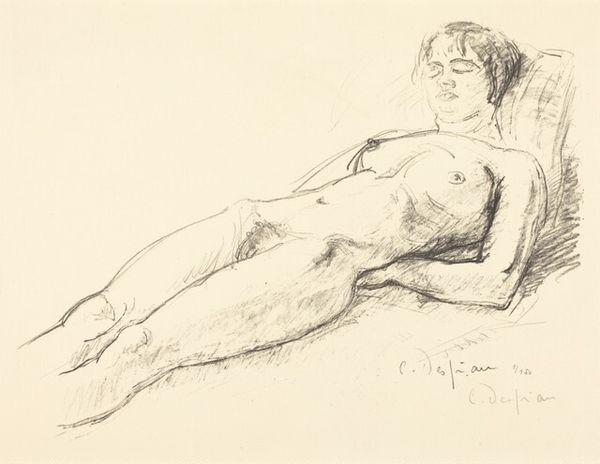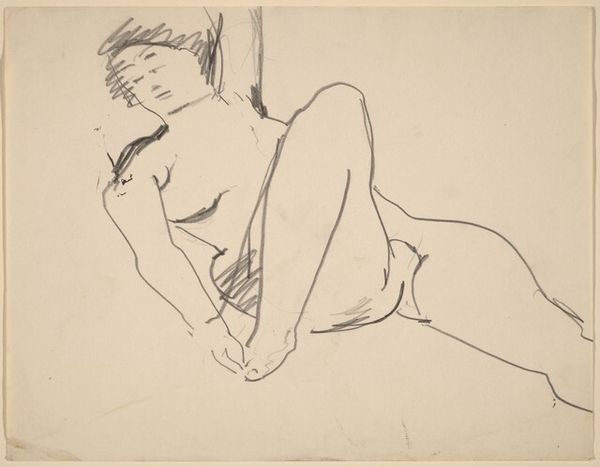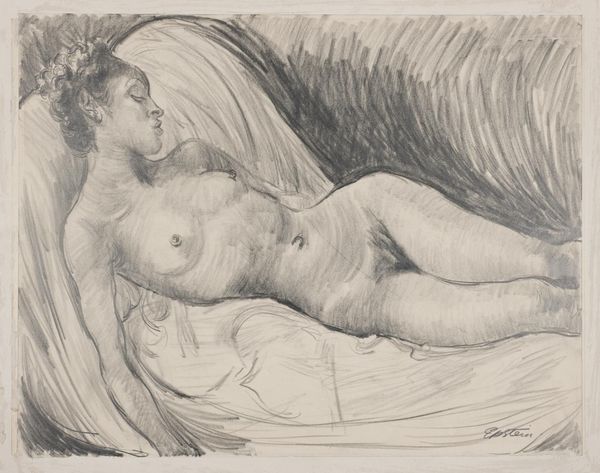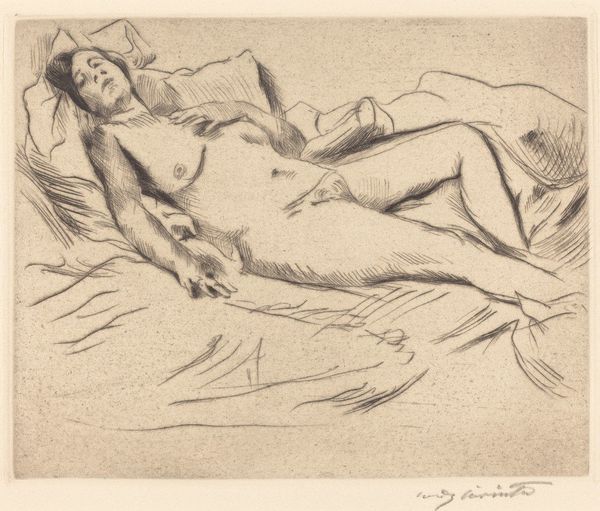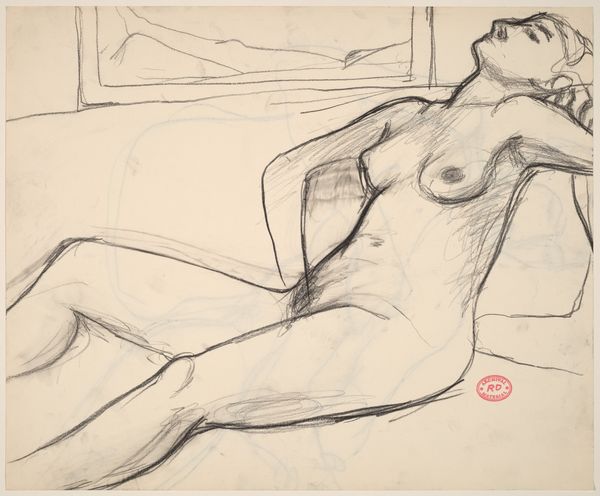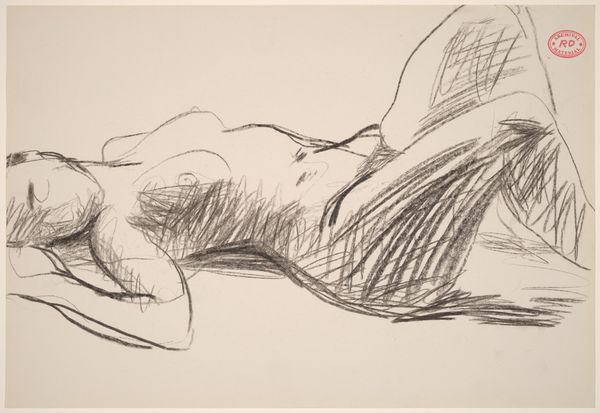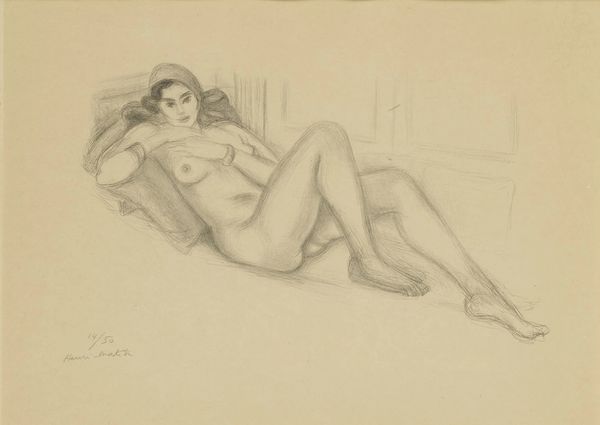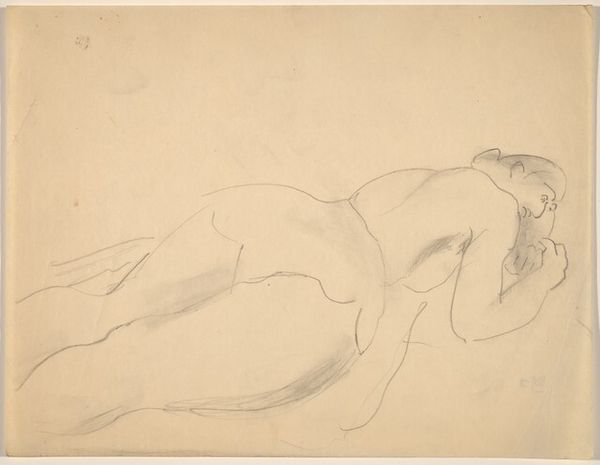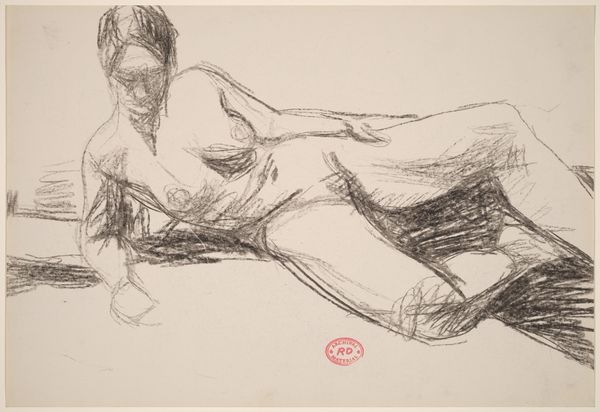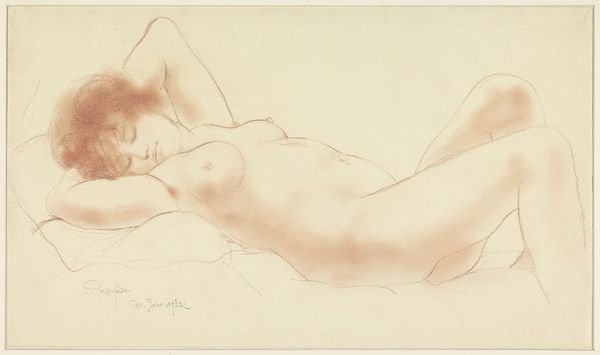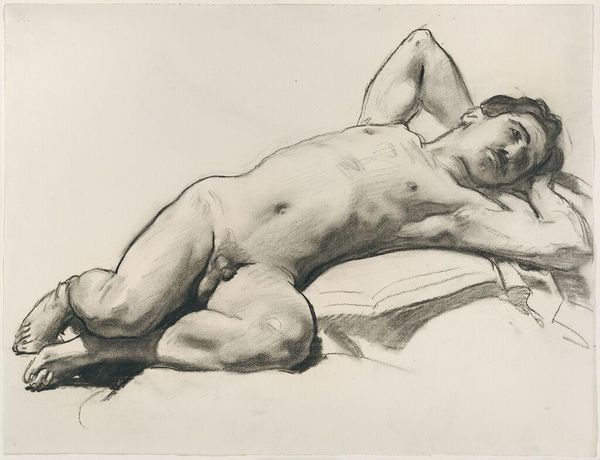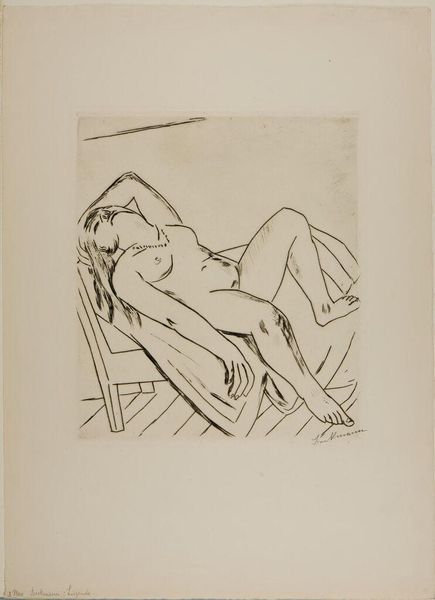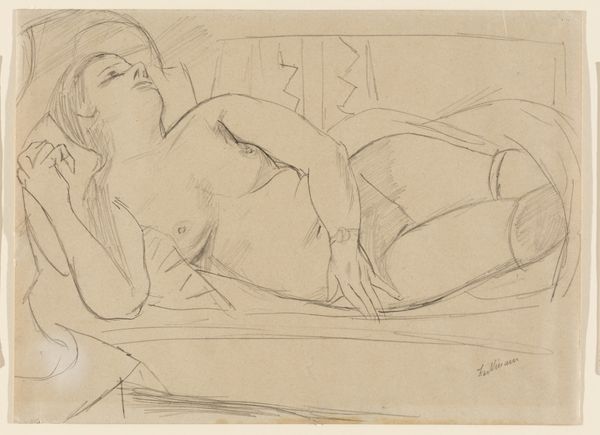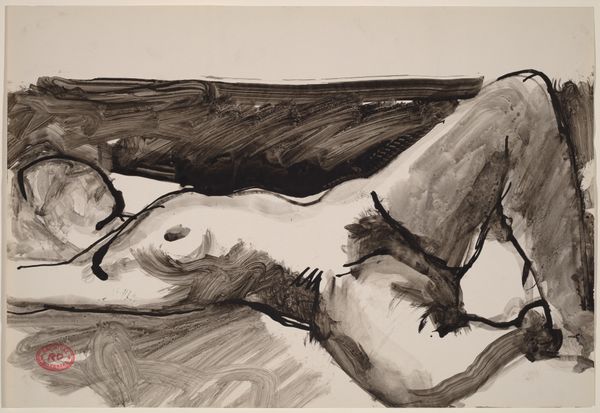
drawing, pencil
#
drawing
#
figuration
#
pencil drawing
#
pencil
#
academic-art
#
nude
#
realism
Dimensions: overall (approximate): 32.4 x 48.5 cm (12 3/4 x 19 1/8 in.)
Copyright: National Gallery of Art: CC0 1.0
Editor: This is Ernest Fiene’s “Reclining Nude,” made in 1929 using pencil. It's surprisingly serene, given the rather stark lines of the drawing. What do you see when you look at it? Curator: I observe a compelling interplay between line and form, typical of academic art training, revealing much about the subject's anatomical presence and its surrounding space. Let’s examine the foreground. Notice how Fiene uses subtle gradations of tone to suggest volume and weight. Consider the position of her limbs. The intentional crossings create visual depth. Editor: I hadn't noticed that before – I was focusing on the overall impression. Curator: The apparent casualness belies the structure inherent within this composition. The subject's body divides the picture plane, inviting us to trace along those lines. Her position is self-contained, yet, paradoxically, invites a voyeuristic inspection. Editor: So you’re saying the simplicity is deceptive; it's carefully planned out. I’m thinking about those shadowy shapes at the top now, beyond the reclining figure… Curator: How do those abstracted regions interact with our perception of the nude figure's solidity? Editor: They create contrast, right? Highlighting the form through darkness, emphasizing the realistic form… or an idea of a realistic form? Curator: Precisely. Consider how this deliberate use of visual language communicates Fiene's broader intentions. How form conveys his ideas. Editor: That’s really given me a new way to approach figure drawings. Thanks! Curator: And my focus has shifted as well! Considering those shadows with fresh eyes reveals so much more about that figure and her space.
Comments
No comments
Be the first to comment and join the conversation on the ultimate creative platform.
